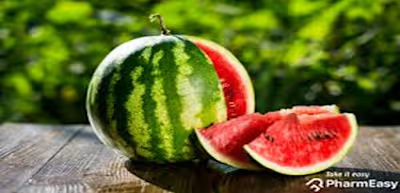Engaging Blog Content Creation for Tech Start-Up
10 FOODS YOU MUST AVOID WHEN TRYING TO LOSE WEIGHT
By Samweli Mwaja
PHOTO: SUGAR SWEETENETED BEVERAGES
In the pursuit of weight loss, dietary choices play a pivotal role in shaping outcomes. Certain foods, laden with sugars, unhealthy fats, and excessive calories, can undermine efforts to achieve and maintain a healthy weight. Understanding the impact of these foods is crucial for making informed choices that support weight loss goals. This discussion explores ten types of foods to avoid when striving to lose weight, examining their nutritional composition, effects on metabolism, associated health risks, and suggesting healthier alternatives for a balanced approach to diet and weight management. By making mindful dietary choices, individuals can optimize their journey towards achieving a healthier lifestyle and sustainable weight loss.
1. Sugar-Sweetened Beverages
Sugar-sweetened beverages such as soda, sweetened iced tea, and energy drinks are notorious for their high sugar content and lack of nutritional value. These drinks contribute excess calories without promoting satiety, leading to potential weight gain over time. The added sugars in these beverages can spike blood glucose levels, which, when consumed frequently, may contribute to insulin resistance, metabolic syndrome, and type 2 diabetes (Malik et al., 2010).
Impact on Weight Loss Efforts:
Regular consumption of sugar-sweetened beverages has been linked to weight gain and obesity in numerous studies. A meta-analysis of prospective cohort studies found a significant association between sugar-sweetened beverage intake and weight gain in both children and adults (Malik et al., 2006). The liquid calories from these beverages do not activate the same satiety mechanisms as solid foods, leading to increased overall calorie intake and potential weight gain.
Health Risks:
Aside from contributing to weight gain, sugar-sweetened beverages are linked to several adverse health outcomes. They have been associated with an increased risk of developing metabolic diseases such as cardiovascular disease and type 2 diabetes (Malik et al., 2010). The high sugar content can also promote dental caries and tooth decay, especially when consumed frequently throughout the day (Moynihan and Petersen, 2004).
Healthier Alternatives:
When aiming to lose weight or maintain a healthy weight, replacing sugar-sweetened beverages with healthier alternatives is recommended. Water is the best choice for hydration, as it contains zero calories and is essential for overall health. Sparkling water or infused water with citrus slices or mint can provide flavour without added sugars. Unsweetened herbal teas or black coffee can also be suitable alternatives, providing a low-calorie beverage option.
In summary, reducing or eliminating sugar-sweetened beverages from the diet can significantly support weight loss efforts and promote overall health. Choosing water or other unsweetened beverages as alternatives can help reduce calorie intake and improve metabolic health.
2. Candy and Sweets
Candy and sweets are high-sugar, high-calorie foods that provide little to no nutritional value. These treats are often consumed for pleasure rather than hunger satisfaction, contributing to excess calorie intake and potential weight gain.
Impact on Weight Loss Efforts:
The high sugar content in candy and sweets leads to rapid spikes in blood glucose levels, followed by crashes that can increase hunger and cravings for more sugary foods. Their low satiety factor can result in overconsumption, making it challenging to maintain a calorie deficit necessary for weight loss.
Health Risks:
Frequent consumption of candy and sweets is associated with an increased risk of obesity, type 2 diabetes, and cardiovascular disease. A systematic review and meta-analysis of prospective cohort studies demonstrated a positive association between higher intake of sugar-sweetened snacks and beverages and risk of cardiovascular disease (Malik et al., 2010).
Healthier Alternatives:
When craving something sweet, opting for healthier alternatives can satisfy the taste buds without derailing weight loss efforts. Fresh fruits like berries, apples, or citrus fruits provide natural sweetness along with fibres and essential nutrients. Greek yogurt with a drizzle of honey or a small piece of dark chocolate (70% cocoa or higher) can also satisfy a sweet tooth while providing some health benefits.
Choosing whole foods that are naturally sweet and nutrient-dense helps to curb cravings and support overall health and weight management goals.
3. Processed Snack Foods
Processed snack foods such as chips, crackers, and snack cakes are convenient but often high in unhealthy fats, refined carbohydrates, and sodium. These foods are typically calorie-dense and low in essential nutrients, making them easy to overconsume.
Impact on Weight Loss Efforts:
The combination of refined carbohydrates and unhealthy fats in processed snack foods can lead to rapid spikes in blood sugar levels, followed by crashes that trigger hunger and cravings. Their high calorie density can contribute to weight gain if consumed frequently without portion control. Health Risks;
Processed snack foods like chips, crackers, and snack cakes pose health risks due to their high content of unhealthy fats (including trans fats and saturated fats), refined carbohydrates, and sodium. These factors contribute to elevated LDL cholesterol levels, increased risk of heart disease, high blood pressure, and lack of essential nutrients.
Healthier Alternatives
opts for fresh fruits and vegetables, nuts and seeds, Greek yogurt, whole grain snacks like crackers or popcorn, and homemade snacks using wholesome ingredients. These alternatives provide essential nutrients, fibres, and healthier fats while supporting weight loss efforts and improving overall health
4. White Bread and Pasta
White bread and pasta are examples of refined grains that have been stripped of their fibres-rich bran and germ during processing. This leaves mainly the starchy endosperm, which is quickly converted into sugar in the body.
Impact on Weight Loss Efforts:
Consuming white bread and pasta can lead to rapid spikes in blood sugar levels due to their high glycaemic index. This can result in increased hunger and cravings shortly after consumption, making it challenging to maintain stable energy levels and adhere to a calorie deficit for weight loss.
Health Risks:
A diet high in refined grains like white bread and pasta has been linked to an increased risk of obesity, type 2 diabetes, and cardiovascular disease. These foods lack the fibres, vitamins, and minerals found in whole grains, which are essential for overall health and weight management (McKeown et al., 2009).
Healthier Alternatives:
Choosing whole grains over refined grains is recommended for weight loss and overall health. Whole grain bread, whole wheat pasta, quinoa, brown rice, and oats are excellent alternatives. These foods contain more fibres, which aids in digestion, promotes satiety, and helps stabilize blood sugar levels.
Replacing white bread and pasta with whole grain options can contribute to better weight management and improved metabolic health over time.
5. Pastries and Baked Goods
Pastries and baked goods such as cakes, cookies, and croissants are often high in sugar, unhealthy fats (including trans fats), and calories. They provide little nutritional value and can contribute to weight gain when consumed frequently.
Impact on Weight Loss Efforts:
The combination of sugar and unhealthy fats in pastries and baked goods can lead to rapid spikes in blood sugar levels and increased calorie intake. These foods are often dense in calories but low in satiety, making it easy to overconsume and hinder weight loss efforts.
Health Risks:
Regular consumption of pastries and baked goods is associated with an increased risk of obesity, insulin resistance, and cardiovascular disease. Trans fats, commonly found in commercially baked goods, have been shown to raise LDL cholesterol levels and increase the risk of heart disease (Mozaffarian et al., 2006).
Healthier Alternatives:
When craving baked goods, opting for healthier homemade alternatives can satisfy cravings while supporting weight loss goals. Baking with whole grain flours, using natural sweeteners like honey or maple syrup in moderation, and incorporating fruits and nuts for added nutrients can make treats more nutritious.
Choosing small portions and enjoying these treats occasionally rather than regularly can help maintain a healthy balance while reducing overall calorie intake.
6. Fast Food and Fried Foods
Fast food and fried foods are typically high in unhealthy fats, refined carbohydrates, sodium, and calories. Regular consumption of these foods is associated with weight gain, increased risk of chronic diseases, and poor overall health outcomes.
Impact on Weight Loss Efforts:
Fast food and fried foods are calorie-dense and often lack essential nutrients like fibres, vitamins, and minerals. Their high fat and salt content can lead to increased cravings, overeating, and difficulty maintaining a healthy weight.
Health Risks:
A diet high in fast food and fried foods has been linked to obesity, type 2 diabetes, hypertension, and cardiovascular disease. The trans fats and hydrogenated oils used in frying processes contribute to inflammation and adverse metabolic effects (Mozaffarian et al., 2016).
Healthier Alternatives:
When craving fast food or fried foods, opting for healthier homemade versions can be a better choice. Baking or grilling foods instead of frying reduces the amount of unhealthy fats and calories. Using lean proteins like chicken or fish, whole grain buns or wraps, and adding plenty of vegetables can make meals more nutritious.
Limiting the frequency of fast-food consumption and focusing on whole, unprocessed foods can support weight loss efforts and improve overall health outcomes.
7. Alcoholic Beverages
Alcoholic beverages contain calories but provide little to no nutritional value. Excessive alcohol consumption is associated with weight gain, poor metabolic health, and increased risk of chronic diseases.
Impact on Weight Loss Efforts:
Alcohol is calorie-dense, with approximately 7 calories per gram. Regular consumption of alcoholic beverages can contribute to weight gain if not accounted for within daily calorie intake. Alcohol also lowers inhibitions, leading to poor food choices and increased calorie consumption.
Health Risks:
Chronic alcohol consumption is linked to liver disease, cardiovascular disease, and certain cancers. Alcohol can disrupt hormonal balance, impair nutrient absorption, and contribute to nutrient deficiencies, affecting overall health and well-being (Suter et al., 2015).
Healthier Alternatives:
Moderation is key when consuming alcohol for those trying to lose weight. Choosing lower-calorie options like light beer, wine spritzers, or spirits with calorie-free mixers can reduce overall calorie intake. Alternating alcoholic beverages with water or club soda can also help stay hydrated and reduce calorie consumption.
Being mindful of portion sizes and considering the overall impact on health can support weight loss goals while enjoying alcoholic beverages in moderation.
8. High-Calorie Coffee Drinks
High-calorie coffee drinks such as flavoured lattes, mochas, and Frappuccino's are often loaded with added sugars, syrups, whipped cream, and whole milk, making them high in calories and lacking nutritional value.
Impact on Weight Loss Efforts:
These coffee drinks can contribute a significant number of calories and added sugars to the diet. Consuming them regularly can lead to weight gain and hinder efforts to maintain a calorie deficit necessary for weight loss.
Health Risks:
High intake of added sugars from coffee drinks is associated with an increased risk of obesity, type 2 diabetes, and cardiovascular disease. The high-fat content in some coffee beverages, particularly those with whole milk or cream, can contribute to elevated cholesterol levels and adverse metabolic effects (Hu et al., 2018).
Healthier Alternatives:
Choosing healthier alternatives like black coffee, espresso, or coffee with a small amount of skim milk or plant-based milk can reduce calorie intake. Opting for unsweetened versions or using natural sweeteners like stevia in moderation can also help limit added sugars.
Being mindful of portion sizes and choosing coffee drinks with fewer additives and lower calorie content supports weight loss efforts and overall health.
9. Full-Fat Dairy Products
Full-fat dairy products like whole milk, cheese, and cream are high in saturated fats and calories. While dairy can be part of a balanced diet, excessive consumption of full-fat dairy may contribute to weight gain and adverse health effects.
Impact on Weight Loss Efforts:
The high calorie and saturated fat content in full-fat dairy products can contribute to excess calorie intake if not consumed in moderation. These products are calorie-dense and may hinder efforts to maintain a calorie deficit necessary for weight loss.
Health Risks:
A diet high in saturated fats, including those found in full-fat dairy products, is associated with an increased risk of cardiovascular disease and other chronic health conditions. While some studies suggest that dairy fat may not be as harmful as previously thought, moderation and balance are key considerations (Chen et al., 2014).
Healthier Alternatives:
Choosing low-fat or fat-free dairy products can reduce calorie and saturated fat intake while still providing essential nutrients like calcium and vitamin D. Opting for yogurt, cottage cheese, or milk with reduced fat content can support weight loss efforts without compromising nutritional needs.
Incorporating a variety of dairy products in moderation as part of a balanced diet can contribute to overall health and support weight management goals.
10. Ice cream
Ice cream is a frozen dessert made from dairy products, such as milk and cream, combined with sugar, flavourings, and sometimes additional ingredients like fruits or chocolate. The mixture is churned during freezing to incorporate air and prevent the formation of large ice crystals, resulting in a smooth and creamy texture.
Impact on Weight Loss
Ice cream, due to its high content of sugar and fat, is typically high in calories. Consuming it regularly in large amounts can contribute to weight gain. However, occasional consumption in moderation can be part of a balanced diet without significantly impacting weight loss efforts.
Risks
Regular consumption of high-sugar and high-fat foods like ice cream can increase the risk of developing health issues such as obesity, type 2 diabetes, and heart disease. Additionally, some people may experience digestive issues due to lactose intolerance.
Alternatives
There are several healthier alternatives to traditional ice cream that can be part of a weight loss or health-conscious diet:
• Frozen Yogurt: Often lower in fat and calories, but check for added sugars.
• Sorbet: Made from fruit and sugar, usually fat-free but still contains sugar.
• Nice Cream: Made from blended frozen bananas, providing a creamy texture without added sugars or fats.
• Low-Calorie Ice Creams: Brands like Halo Top and Arctic Zero offer ice creams with reduced calories, sugars, and fats.
Study Reference
A study published in "The American Journal of Clinical Nutrition" highlights the link between high sugar and fat intake from foods like ice cream and an increased risk of obesity and metabolic diseases. The study emphasizes the importance of moderation and choosing healthier alternatives when possible (Astrup et al., 2001)
Conclusion
In conclusion, avoiding these ten foods—sugar-sweetened beverages, candy and sweets, processed snack foods, white bread and pasta, pastries and baked goods, fast food and fried foods, alcoholic beverages, high-calorie coffee drinks, full-fat dairy products, and artificially sweetened foods and beverages—can significantly support weight loss efforts and promote overall health.
Each of these foods contributes to excess calorie intake, lacks essential nutrients, and may pose health risks when consumed regularly. By replacing them with healthier alternatives such as water, whole grains, fruits, vegetables, lean proteins, and low-fat dairy options, individuals can create a balanced and sustainable diet that supports weight loss and improves metabolic health.
Like this project
Posted Jul 18, 2024
Samwel crafted my informative blog posts for a tech start-up, boosting their online presence and driving user engagement through compelling copywriting.
Likes
0
Views
2
Tags



